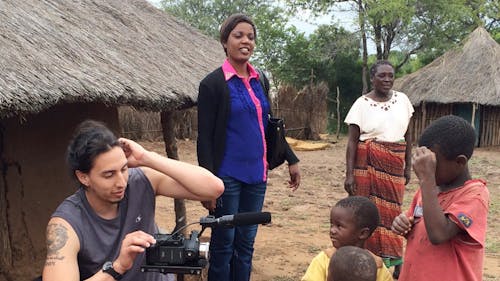Rutgers launches digital filmmaking major

In her eight years of teaching, Dena Seidel has had many students approach her asking why Rutgers does not offer a filmmaking degree.
Now, students interested in following a career path in filmmaking finally have the chance to receive a bachelor of fine arts degree in digital filmmaking beginning in the 2015 fall semester.
In the past, students have left Rutgers because it did not offer a filmmaking degree, said Seidel, the director of the Rutgers Center for Digital Filmmaking.
“I am thrilled that we are now in a position to attract and retain talented students who are passionate about digital filmmaking and story telling for the screen,” Seidel said.
According to a statement released by the Mason Gross School of the Arts, applications for the 121-credit interdisciplinary major will be available at the end of September.
The goal of the major is to train students in all aspects of filmmaking, which includes studies in cinematography, field production, script writing and story boarding and much more, according to the statement.
Mandy Feiler, the director of admissions at Mason Gross, is especially excited about the new program because many students at different events have asked her about a program like this, and up until this year Rutgers did not have one.
Mason Gross’s previous 22-credit certificate program for filmmaking had such high demand that Seidel and the Writers House created this BFA program, Feiler said.
It not only gives students the technical skills of a digital filmmaker, but also provides an education in humanities so they can become better storytellers, whether they work in fiction or non-fiction, she said.
According to the statement, students will have access professional equipment and editing software and a film studio that includes a high-definition projector, soundproofing, studio lighting, sound system and six networked MacPro computers.
Students can also work with the Rutgers Film Bureau, the documentary office that works out of the University, according to the statement. The program would aim to link filmmakers with artists, scientists and the community leaders at the University.
The BFA in digital filmmaking fulfills a long-awaited need to offer students a professional degree in film production, said George Stauffer, dean of Mason Gross.
“With its unique links across the university, the Rutgers Center for Digital Filmmaking will provide solid, practical training in this medium,” he said.
Seidel said their pedagogy connects the art of filmmaking to the sciences, creative writing and the humanities like no other film program in the state.
“We train our students in all aspects of digital production including cinematography, directing, editing, lighting, sound recording as well as fiction and documentary filmmaking, animation and new media platforms,” she said.
Stephanie Wong, a representative for the Department of Visual Arts, was one of the Mason Gross students who waited on this major.
One of Wong’s favorite film class was “Directing for the Screen” with Patrick Stettner, an instructor for Mason Gross and one of Variety magazine’s top ten directors in 2006.
“With the very disproportionate ratio of female to male film directors in the industry, I appreciated it the most because I gained some serious sense of confidence coming out of that course,” said Wong, a Mason Gross junior.
She said it was a good program for film lovers, but was best for people with a creative or visionary mindset.
“It comes easier … if you’re the type who has a drive and an imagination or some personal experience that needs to be seen by other people,” she said.



